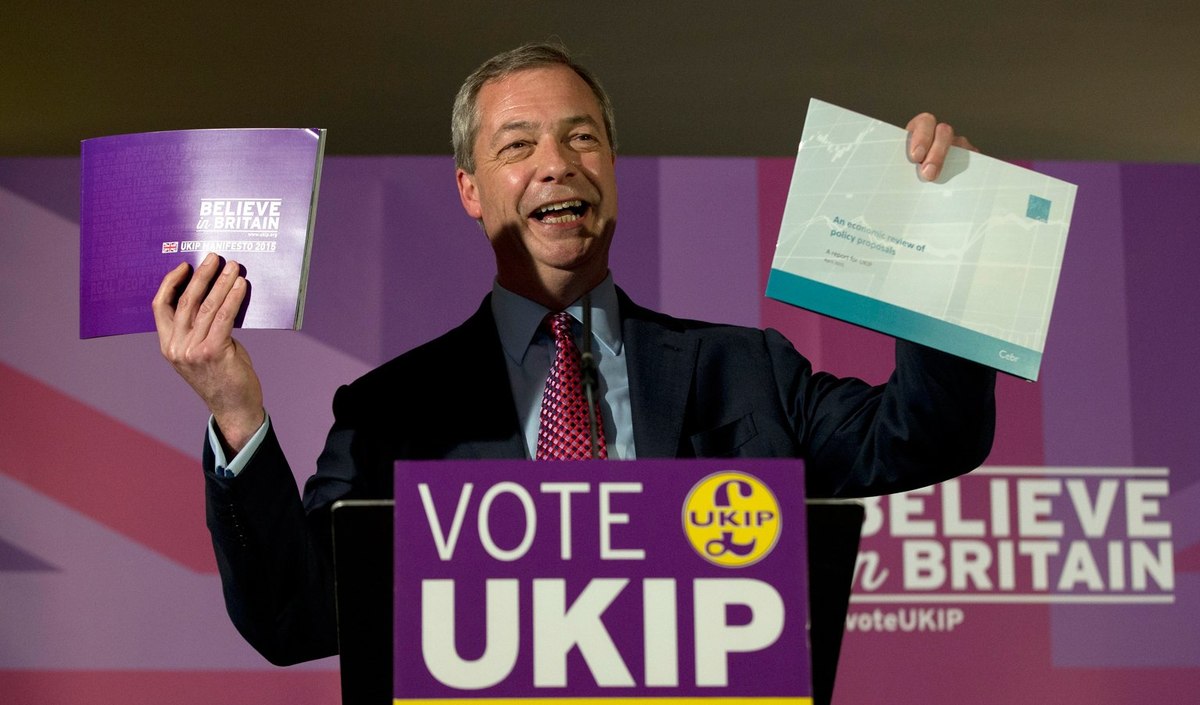If opinion polls are anything to go by, very little has happened so far in this election campaign: the parties’ ratings have stayed much where they were three weeks ago.
So, with another three weeks still to go to polling day, the party leaders must be hoping that the publication of their manifestos, which have come out in a flurry this week, will do the trick. But how much do manifestos matter? And do the specific policies the parties offer provide not only what key voters want but also what the country needs?
One of the oddities of the manifestos published by the two main parties is that both seem to be playing opposite to type. Labour was first off the blocks, unveiling its plans at a rally in Manchester on Monday. The party confounded expectations from the start, highlighting the very thing commentators said the party would want to distract voters’ attention from: their competence to run the economy.
Polls have long shown Labour trailing the Tories badly on the issue. Specifically, voters seem to have bought the Conservative line that cutting the deficit is what matters most, that Labour has been proven wrong in saying the government was cutting spending ‘too far and too fast’ and that therefore Labour could not be trusted with the economy. The fact that the Chancellor, George Osborne, modified his austerity plans, implicitly taking on board Labour’s (and many economists’) critique, made no difference to the politics of the matter: the Tories were ‘right’ on the economy and Labour was ‘wrong’.
But instead of brushing all this under the carpet and focusing on an issue (such as the NHS) in which the party has an unassailable lead, Labour made the economy the centrepiece of its manifesto. In what many regarded as itself a rather austere-looking document, it made ‘securing our national finances’ a central goal. Mr Miliband committed himself to imposing what he called a ‘budget responsibility lock’, involving balancing the current deficit, cutting the national debt and making no unfunded spending promises. He would, though (and in contrast to the Tories) be ready to borrow more money to finance government investment in infrastructure projects
His critics were quick to point out that, reassuring as the language of Labour’s manifesto might be, there was little detail about how exactly a Labour government would set about the next round of spending cuts that any government elected on 7 May will have to impose. And some business leaders continued to express their scepticism about whether Labour really would be good for the economy, citing policies on top rate taxation, doing away with the non-dom tax status of wealthy foreigners and restricting zero-hours contracts as evidence of their doubts.
The following day it was the Tories’ turn and here too expectation was confounded. Instead of repeating the hair-shirt message that we could not let up on austerity if Britain were to regain its strength, David Cameron painted a picture of the ‘good life’ that was just around the corner. Indeed, far from posing as a reluctant but necessary Scrooge, he seemed to be promising a spending spree, and without even bothering to make clear where all the money will come from.
So, in recent days, the Prime Minister has committed himself to an extra £8bn for the NHS, an increase in free child care, excluding most family homes from the calculation of inheritance tax, freezing rail fares and, most eye-catchingly of all, extending the right-to-buy to housing association tenants.
The Tory manifesto makes clear the political reason why these policies have been chosen: the party wants to present itself as ‘the party of working people, offering you security at every stage of your life’. Margaret Thatcher won and retained power by appealing beyond traditional affluent Tory voters to aspiring working class families who wanted to own their homes and whom she helped to do so by giving them the right to buy their council houses. David Cameron now wants to repeat the strategy.
But his critics see it as a cynical and purely political move that could well do more harm than good. They point out that it will cost the taxpayer billions (as housing associations will have to be recompensed) but will do little to address the real problem in housing which is the shortage of supply of new homes, especially of so-called ‘affordable’ and social housing. Although the proceeds of the sales are supposed to be ploughed back into new homes, the record of this actually happening is not encouraging. Mrs Thatcher’s policy saw over two million council houses sold, but only 345,000 new council houses built.
In general, the Tories’ critics have charged the party with risking its whole reputation for economic competence by relaxing its discipline in the search for votes.
Meanwhile the smaller parties, who seem certain to play a key role in the forming of the next government, have published their manifestos too. The Liberal Democrats have recommitted themselves to spending more than the others on education and claim to be the only reliable potential partners in the coalition many people believe will inevitably have to be formed. The Greens propose not only what they see as environmentally sustainable policies but radical policies on issues such as inequality to the left of Labour. UKIP wants not only to get out of the EU and curb immigration, but commit the country to levels of defence spending about which the Tories are coy. And the SNP wants an end to austerity, with more public spending, much of it, inevitably, in Scotland.
These, then, are what political commentators rather horribly call the ‘retail offers’ the parties are now making to the voters through their manifestos. Whether they will unblock the polls and help one or other party storm into the lead remains to be seen.
There is, of course, another explanation as to why the opinion polls have not been shifting. It’s that the public has simply not been paying any attention to the campaign at all. Will the manifestos change that?
What’s your view? Do the manifestos matter to you and will you actually read them? Do you think they matter to other people? What do you make of the specific policies the parties are putting forward to try to get your vote? What, in the end, will determine how you vote or whether you will vote at all? Or have you already decided which party to vote for?










